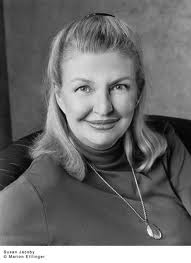In an Op-Ed piece in the New York Times, the ever fabulous Susan Jacoby explores different ways in which believers and non-believers cope with grief and loss. This is how it begins:
IN a recent conversation with a fellow journalist, I voiced my exasperation at the endless talk about faith in God as the only consolation for those devastated by the unfathomable murders in Newtown, Conn. Some of those grieving parents surely believe, as I do, that this is our one and only life. Atheists cannot find solace in the idea that dead children are now angels in heaven. “That only shows the limits of atheism,” my colleague replied. “It’s all about nonbelief and has nothing to offer when people are suffering.”
This is not true. There are plenty of things that can be offered to people when they are suffering, that have nothing to do with God/afterlife. Look at Buddhist philosophy, for example: it is really not about God, and whether or not you believe is not even relevant. Rather, it teaches you to look at grief objectively, analytically examine your own reaction to the loss, and try to change it in such a way that no matter how tragic the situation, you can still get on with your life. Regardless of whether you agree with this approach or not, it goes to show that the claim that without belief in God there is nothing to offer to the grieving is absurd.
Jacoby hits the nail right on the head:
The secular community is fearful of seeming to proselytize. When giving talks on college campuses, I used to avoid personal discussions of my atheism. But over the years, I have changed my mind because such diffidence contributes to the false image of the atheist as someone whose convictions are removed from ordinary experience. It is vital to show that there are indeed atheists in foxholes, and wherever else human beings suffer and die.
One thing is for sure: public opinion of us is not going to change if we are seen as MIA when times are tough.
IT is primarily in the face of suffering, whether the tragedy is individual or collective, that I am forcefully reminded of what atheism has to offer. When I try to help a loved one losing his mind to Alzheimer’s, when I see homeless people shivering in the wake of a deadly storm, when the news media bring me almost obscenely close to the raw grief of bereft parents, I do not have to ask, as all people of faith must, why an all-powerful, all-good God allows such things to happen.
The atheist is free to concentrate on the fate of this world — whether that means visiting a friend in a hospital or advocating for tougher gun control laws — without trying to square things with an unseen overlord in the next. Atheists do not want to deny religious believers the comfort of their faith. We do want our fellow citizens to respect our deeply held conviction that the absence of an afterlife lends a greater, not a lesser, moral importance to our actions on earth.
Alternatively, you can pull a rick mix of poorly put together mix of fairy tales and quotes from discredited journals (Vincent Torley style) to protect your imaginary friend in the face of overwhelming evidence.
Robert Green Ingersoll, who died in 1899 and was one of the most famous orators of his generation, personified this combination of passion and rationality. Called “The Great Agnostic,” Ingersoll insisted that there was no difference between atheism and agnosticism because it was impossible for anyone to “know” whether God existed or not. He used his secular pulpit to advocate for social causes like justice for African-Americans, women’s rights, prison reform and the elimination of cruelty to animals.
But culturally, cards are stacked against non-believers in such a way that even a fellow atheist like Jesse Bering wouldn’t trust him.
He also frequently delivered secular eulogies at funerals and offered consolation that he clearly considered an important part of his mission. In 1882, at the graveside of a friend’s child, he declared: “They who stand with breaking hearts around this little grave, need have no fear. The larger and the nobler faith in all that is, and is to be, tells us that death, even at its worst, is only perfect rest … The dead do not suffer.”
Jacoby doesn’t go into that, but this is actually one of the strengths of atheism. Many believers will be left wondering if, once dead, their loved ones are subjected to more tormenting. They certainly should if they are “God fearing” Christians or Muslims.
In his speech at an interfaith prayer vigil in Newtown on Dec. 16, President Obama observed that “the world’s religions — so many of them represented here today — start with a simple question: Why are we here? What gives our life meaning?” He could easily have amended that to “the world’s religions and secular philosophies.” He could have said something like, “Whether you are religious or nonreligious, may you find solace in the knowledge that the suffering is ours, but that those we love suffer no more.”
Which brings us back to the old problem-politicians continue to ignore us even when they cannot ever win without our support.

